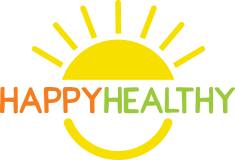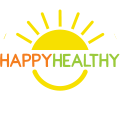In the event of a water emergency, it is important to:
- stay hydrated by drinking bottled water or water that has been boiled for one minute.
- cook, wash fruits and vegetables, and brush teeth with bottled water or water that has been boiled.
- use tap water for bathing, handwashing, washing clothes, and flushing toilets.
- monitor updated information provided by local authorities through their social media outlets regarding the water situation as new information is available.
Importance of Hydration
- Stay hydrated by drinking bottled or boiled water after it has cooled.
- How to make water safe to drink:
- Boil water for one minute. Water must be bubbling the entire time.
- Start counting to 60 when the water comes to a rapid rolling boil. Let the water cool before drinking or storing it in a container.
- For additional fluid needs, and to stay hydrated, eat fruits and vegetables (canned, fresh, or frozen) and frozen fruit pops.
- Watch for signs of dehydration:
- Sluggishness, dizziness, headache, and feelings of thirst.
- If you feel thirsty, you are already dehydrated. If you experience any of these signals, make sure you drink bottled water immediately.
Storing Water for Drinking
- Store a minimum of one gallon of clean water per person per day for drinking and cooking.
- Clean food-grade plastic or glass containers are good for storing water. They need to be clean.
- Food-grade containers are store-bought plastic or glass containers that previously held food or beverages. Examples include 2-liter soda bottles and water, juice, and punch bottles.
- Make sure your container is cleaned and ready to store water before you need it. Wash the container with hot, soapy water. Rinse the soapy container well with plain water.
- Write “drinking water” on the container with the current date.
- Store tightly capped containers in a cool, dry place away from direct sunlight.
- To learn more, check out these Tips and Videos.
Helpful Tips for Water Safety
- Frequently wash your hands with soap and tap water.
- Breastfeed or use ready-made baby formula. If you use water to make formula, use bottled water until officials say your water is safe to drink.
- Bathe with tap water, being careful no water gets in your eyes, nose, and mouth.
- Watch children while they bathe to make sure they don’t drink the water.
- Brush your teeth with bottled water or water that has been boiled.
- Avoid soft drinks and coffee as they may cause dehydration.
- Minimize the amount of water you need by reducing activity and staying cool.
- Wash laundry as usual. All water temperatures are safe to use.
- Use bottled water or water that has been boiled for pets.
- Discard any ice made during the boil water notice.
- Wash fruits and vegetables in water that has been boiled for a minute and has cooled.
- Use disposable plates, cups, and utensils to reduce the need to wash dishes.
The City of Jackson posts boil water notices and updates on their website:
https://www.jacksonms.gov/boil-water-notices/
The Mississippi Emergency Management Agency (MEMA) posts updates and locations for water distribution in the Jackson area. Details are on their website:
https://www.msema.org/jackson-water-crisis-2022
By Drew Cole, Mississippi State University Extension Service.
This material was funded by USDA’s Supplemental Nutrition Assistance Program - SNAP. This institution is an equal opportunity provider.
Publication 3848 (POD-12-22)




